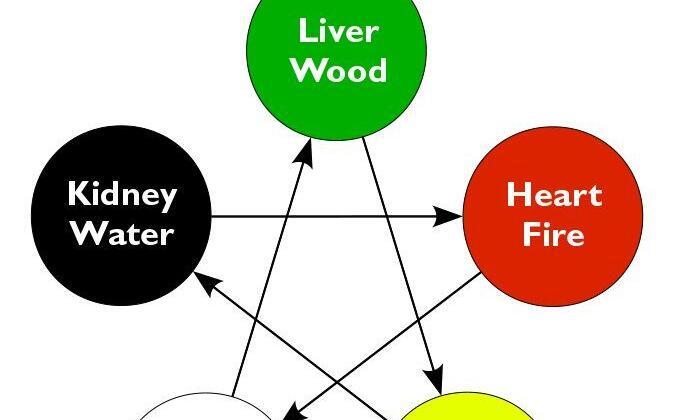In Traditional Oriental Medicine, the understanding of the organs is different than that of Western medicine. The physical organs, along with their corresponding energetic meridian pathways are never regarded as independent systems but instead, are always viewed in relation to the rest of the body.
Probably the easiest way to get some insight into Eastern medicine is to look at the extremes of both a young infant and an elderly person, and how similar their characteristics are. In the case of the child, the Kidney system is still in development while for the older person, a weakening Kidney function is just a progression of the natural aging process:
- bald / balding
- no teeth / loosing teeth
- bed-wetting / incontinent
- weak back & legs / hunched back
- soft bones & open fontanel / brittle bones
- undeveloped memory / poor memory
- undeveloped reproductive organs / declining sexual function
As can be seen from just this brief list, the Eastern view of the Kidney system involves many other parts of the body as well:
- urinary system
- reproductive system
- hormones
- growth & development
- bones & marrow, especially the spine
- brain function & memory
According to Traditional Oriental Medicine, the Kidney is also in charge of controlling the Fluid metabolism throughout the body and could be thought of as the coolant system that prevents things from overheating. For example, a condition commonly treated with acupuncture is the typical menopausal woman where the Kidney system is not doing its job of cooling the body. As a result, this extra heat rises up and collects towards the top of the body, producing symptoms such as hot flashes, night sweats, shoulder pain, and insomnia.
In addition, the Kidney is regarded as a measure of strength of a person’s constitution, similar to what Western medicine might refer to as hereditary and genetic factors. For instance, the grandma who has her 3 gin & tonics every day, smokes cigarettes like a chimney, has never been sick a day in her life, and yet lives to 100 would definitely be described as having a strong Kidney system. On the other extreme, the frail, sickly, asthmatic kid who’s always coming down with a cold has a weak Kidney system and will probably have to work extra hard for the rest of their life just to maintain average health.
Finally, Eastern medicine makes special connections between specific organs and their corresponding emotions. In the case of the Kidney, its emotions are associated with fear, shock, and willpower. An obvious example of this would be someone who gets a sudden scare and loses control of their bladder. Another less common example could be someone who experienced a traumatic event and seemed to age overnight as a result.
With regards to willpower, references to this exist even in our everyday language, such as describing a weak person with no ability to stand up for themselves as “spineless” or “having no backbone“, which especially makes sense from the Eastern perspective since the Kidney and Bladder acupuncture meridian pathways actually travel through the back and spine areas.
Hopefully, this brief introduction to the Kidney system gives a better understanding of the way Traditional Oriental Medicine views a person and how it interconnects everything together.
Some conditions often related to the Kidney
- back pain
- knee & foot pain
- fatigue
- diabetes
- menopause / hot flashes
- hypothyroid / hyperthyroid
- urinary problems
- insomnia
- poor memory
- lack of willpower
Tips for keeping the Kidney healthy
- Stay flexible – because both the Kidney meridian and its related Bladder meridian travel through the back and the legs, maintaining flexibility in these areas is very important. Yoga poses such as Downward Dog and Child’s Pose, along with stretches for the hamstring muscles help to gently stretch out and improve the energy circulation of these meridians. You’re only as young as your back!
- Keep warm – because the Bladder meridian travels through the top of the head and neck, exposure to drafts can allow cold to enter here, where it can then travel along the meridians and penetrate deeper into the body. For a similar reason, the abdomen and lower back should always be covered up and kept warm (even if fashion trends say otherwise).
- Breathe deep – so many of us are shallow breathers, especially when stressed out. By focusing on deep relaxed abdominal breathing, it helps draw energy downwards to help strengthen the Kidney system.
- Don’t stress out – unlike our ancestors who had to deal mostly with immediate physical threats such as war or hunting, we have to deal with more prolonged stress (physical and mental) since modern society usually doesn’t allow us to either fight or run away from danger. This continuous stress tends to build up in the body and depletes the Kidney adrenal system.


